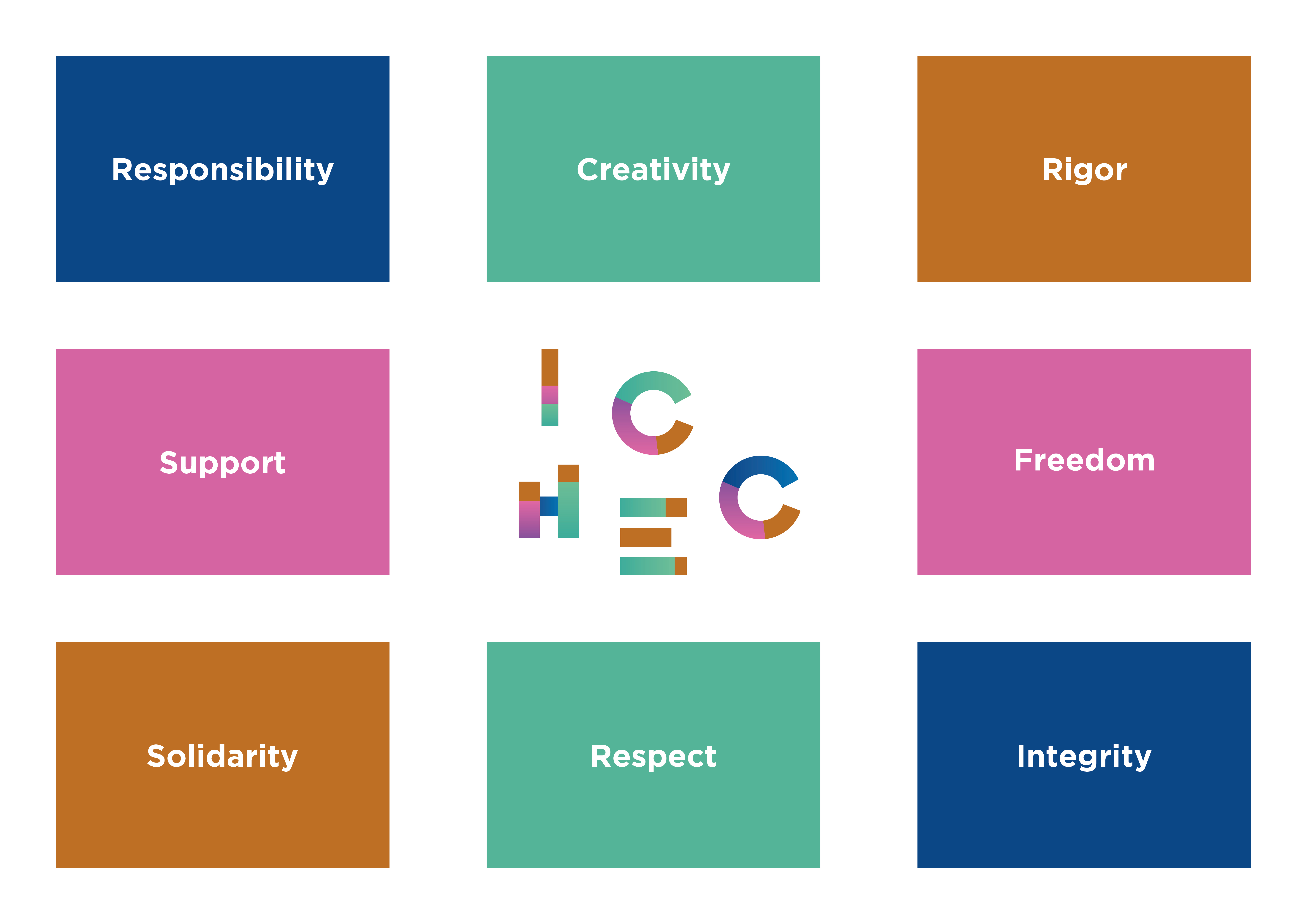Our vision
Our vision is to contribute to a world where research fosters greater quality of life and a fairer, more inclusive society.
Our mission
The IRL supports free and creative, rigorous and responsible research within ICHEC Brussels Management School;
provides knowledge that bridges theory and practice through collaborative dialogue;
and promotes the reflective development of both the world and business.
Our values

8 core values
It’s considering new possibilities.
It’s questioning already accepted paradigms that promote the evolution and creation of knowledge and skills.
It’s thinking, seeing and acting differently, stimulating creative intuitions and daring new approaches.
It's about bringing new things to life and realizing original solutions.
It’s deciding and acting according to known or recognized principles that take into consideration the consequences of the choices made, for all stakeholders concerned, according to different timeframes, and being accountable for the positions and decisions taken.
It’s daring to make choices of research subject according to the potential repercussions in terms of the common good.
Finally, it means raising awareness and supporting young researchers in the development of these guiding principles of responsible research.
Responsibility is declined at the individual, collective and institutional levels.
It’s about mutual aid, cooperation, and the sharing of theoretical, empirical and methodological knowledge that allows research projects to move forward and increase their relevance to the field.
It’s acting not only legally, but also ethically and fairly towards oneself and others inside and outside the research center.
It’s research ethics, applied to the collection and analysis of data, as well as to the publication of results.
It’s valuing and esteeming others (their ideas, their centers of interest and research, their epistemological positioning), both in words and deeds, even if we do not approve or share everything he/she does.
It’s being broad-minded, accepting the other and not to trying to change him/her.
It’s investing in the person and his or her development in the institution.
It means putting in place a long-term human and material infrastructure so that the research process can be pursued with confidence and respect for health and well-being in the workplace.
It means encouraging and valuing the work of others through various channels: adequate funding, but also positive interpersonal relationships with colleagues, or even punctual help when necessary.
It’s the result of efforts made by a diversity of actors.
It’s respecting the scientific criteria of the reference community, by applying precise, orderly, systematic theoretical or empirical approaches to strengthen confidence in the accuracy of research results and conclusions. This implies documenting approaches and justifying one's methodological, empirical and theoretical choices, confronting peers and the field, and taking into account the contributions of one's discipline and those of other disciplines on one's subject - what we call consilience.
It’s the possibility for the researcher to choose the research topics and directions, without pressure from the institution or the funders. Freedom to be able to disseminate the results of their research in their courses, publications, etc...
This is a necessity for science to be able to move forward on its own, without being under the direction of the political or economic world. Trust from the institution, and adequate funding from the academic world are required for this freedom to be achieved.
This freedom goes hand in hand with accountability and taking responsibility for one's choices. It also presupposes the researcher's commitment to disseminating the results of his or her research in the classroom.